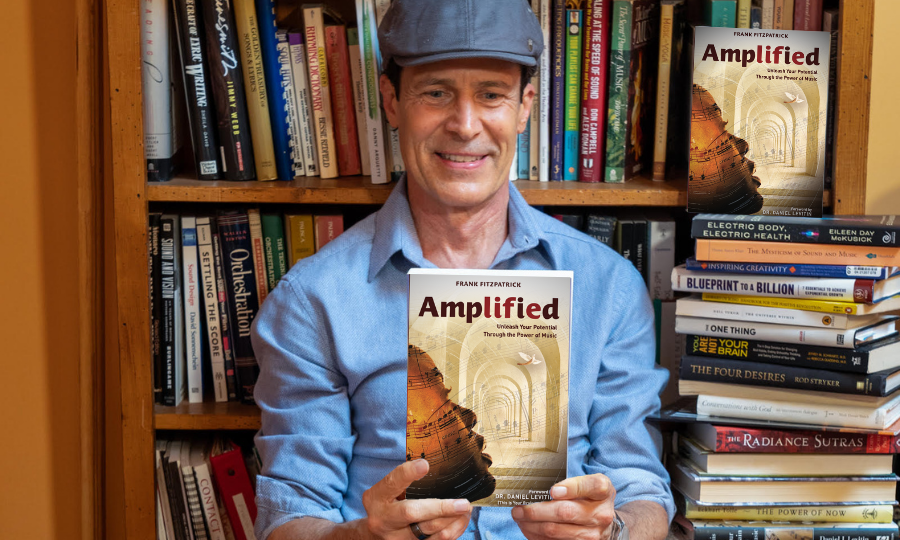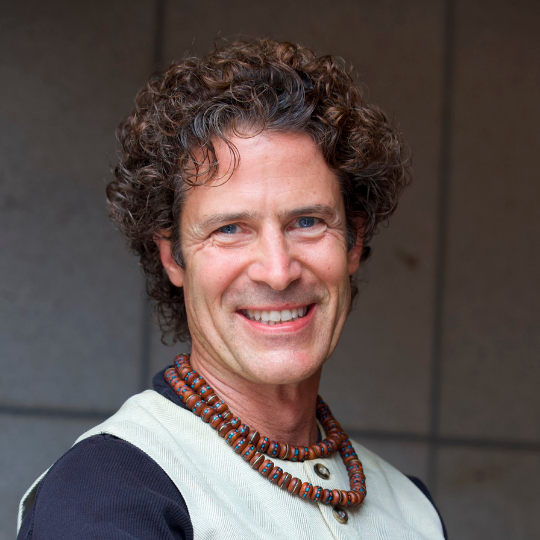“A song will outlive all sermons in the memory.”
Henry Giles
Meet Una Vida—a talented jazz singer from New Orleans confronted with the daunting task of caring for herself as her mind and memory slip away into an accelerating state of cognitive decline.
Watching Una Vida in her element — singing classic ballads, jazz and blues to an enamored audience — is beautiful to behold. Meeting her on the street or witnessing how she goes about her daily life is quite another story.
Now meet Henry—an elderly Black man passing his days in a half-conscious state in an assisted-living facility in New York.
Seeing Henry on an average day, crumpled over in his chair and detached from the world around him, is disheartening at best. Watching him light up as he listens to his favorite songs from better days is almost hard to believe.
Una Vida and Henry have three things in common:
1. They are each the subject of a feature-length film.
2. They both love music.
3. They both suffer from severe dementia.
A Growing Epidemic
Dementia is a horrific disease for both the patient and the caregivers. If you are close to anyone who has dementia or Alzheimer’s (and most likely you are), you know this all too well. In addition to the suffering that the individuals and their loved ones endure, the impact on society is enormous.
According to a report in Scientific American, dementia affects nearly forty-five million people, a number expected to double in the next twenty years. Meanwhile, the cost to the global economy is expected to reach $550 billion. As I write this book, Alzheimer’s drugs rank at the bottom of the list of pharmaceutical solutions, scoring a 99.6 percent failure rate. If you factor in the negative side effects, the exorbitant cost to the patient, and the social stigma around the disease, you end up with a pretty grim scenario. Surely, a better solution must exist.
While music can serve as an effective therapy for a number of health conditions, the positive impact of music on people suffering from Alzheimer’s and dementia is so extraordinary that it should have us all singing its praise. To embrace these music-based solutions, however, the medical-science community requires more research studies. At the same time, convincing the general public, shifting the stigmas around the issue, and securing funding sources to invest in the required research and available services takes a lot more than proof of concept.
As a means to create the required awareness and perception shifts, few means available are as powerful as film. Through their stories, and the films that portray them, Una Vida and Henry offer personable and engaging testimonials to music’s power to heal.
Intimate Glimpses into Life with Dementia
Henry is one of several residents of an assisted-living facility who has experienced a dramatic improvement in his state of well-being and quality of life through music. He first came into the public spotlight through a viral video. In it, a nurse places a set of headphones on his head and plays some of his musical favorites from a happier, younger, healthier time. Suddenly, Henry awakens from a near-comatose state into one of elation, coherence, and enthusiasm, and then cries tears of joy. That viral clip is part of a 2014 documentary film called Alive Inside
Watching Alive Inside we witness the remarkable stories of Henry and other patients, along with the testimonies of those who bear witness to their transformations. We follow the journey of Dan Cohen, a social worker on a mission to bring music to assisted-living facilities across the country. The film was so revealing, and the impact of personalized music playlists on the patients so undeniable, that within a year of its release, more than nine hundred facilities had adopted Music and Memory programs, and three states—Wisconsin, Utah, and Ohio—were taking steps to mandate music programs in their assisted living centers.
Una Vida’s experience with dementia is chronicled in a dramatic film that shares her name. The film is based on the true story of neuroscientist Dr. Nicholas Bazan and his relationship with the jazz singer and street performer Una Vida as her world starts to unravel due to dementia. Through his relationship with Una Vida, Bazan became fully engrossed by the power of music to help the failing mind. It changed the course of his life and his work as Founding Director of the Louisiana State University School of Medicine Center for Excellence in Neuroscience. Dr. Bazan has since created an international task force to bring the research supporting the benefits of music for these brain disorders to the forefront of medical science.
Both of these films offer a revealing and inspiring window into the lives of the millions of people who suffer from dementia. More importantly, they demonstrate the power of music in helping to shape and recall one of the most valuable functions of the human brain: memory.
Music and Memory, Intertwined
Maybe more than any other known activity, participating in music activates a vast array of areas of the brain and includes robust activation of the memory system. Could music be a potential game changer when it comes to memory?
Music can help us remember all kinds of information, whether a teacher uses the melody of a nursery rhyme (“Twinkle, Twinkle, Little Star”) to help children remember a scrambled string of twenty-six letters (the alphabet) or a caregiver plays music to help a dementia patient recall the lost memories of their past.
This knowledge, and the intentional and informed practice of developing and using personalized music playlists, can help you dramatically change the quality of life for your loved ones and provide a powerful and highly enjoyable personal care regimen for yourself. Whether or not someone in your life is currently suffering from dementia, you can gain much from understanding the relationship between music and optimal cognitive function.
By learning more about the effect of music on the aging brain, you can also start to more fully appreciate the value of using music in your children’s developmental stages, in the ongoing formation and rejuvenation of your own cognitive performance, and in your journey toward happiness, longevity, and general well-being. The more you come to know how music can help with neuroplasticity and memory functions of the brain, the better you will become at applying music as a therapeutic treatment in your life and in the lives of those you love.
If you are concerned about your own aging memory, you can start building playlists now that keep the most joyful and cornerstone moments of your life actively conditioning your brain. Think of it like a seed vault for memories that you can open when those memories start to slip away.
Even if you are not concerned about a declining memory as you age, you can still use music to help you remember things at any point in your life. One way is by creating tunes or applying familiar melodies to help you learn and retain important facts and ideas, just like that melody to “Twinkle, Twinkle, Little Star” helped you remember the alphabet. The more you listen to the music and the more emotionally charged or rich the event or time period, the more the music, and the memory, will be embedded in the associated regions of your brain.
Need further evidence that musical memory is strongly tied to emotionally rich or turbulent times in your life? Let me jog your memory. Think about how attached you are to the music you loved during your teenage years. Even if you don’t see it clearly in yourself, think about one of your parents, an older sibling, or a relative whose favorite musical groups, even twenty-five years later, are the ones they idolized in their junior high school or college days.
One theory behind this phenomenon is that the neuroplasticity of the brain is said to be higher during the formative ages of twelve to twenty-five, allowing the music and the experiences associated with it to leave deeper and more lasting impressions. Related explanations behind the long-lasting musical impressions of our youth are explored in the research of music and identity, which I address in my latest book, Amplified. One explanation has to do with the coupling of our music listening with the typically heightened emotional and social influences we experience during those years.
Whichever body of research we choose, we can use this information to make more conscious choices about the music we listen to during those formative years, and to reconnect later in life to the joyful emotional state we might associate with that music.
Helping Those You Love—and Yourself
On a more serious note, if someone you love is suffering from Alzheimer’s or dementia, the experience can be very disheartening for everyone involved. Music, however, can help alleviate some of that sorrow in a number of important ways. For your loved one, playing them
familiar songs to which they have an emotional attachment or that are tied to important memories can help them access those areas of the brain where memories are stored but are not accessible through other means. It can also relieve their stress, depression, and mental anxiety, all byproducts of these diseases.
If you are the caregiver, family member, or close friend of someone suffering from cognitive impairment or decline, helping your loved one build their personal playlist can be a joyful activity to share with them, can facilitate more natural communication, and can help you build deeper emotional bonds. If they are unable to remember their favorite songs, you can choose music and artists that were popular during their younger years, and gauge their response. Make a game of it, and bring some lightness and fun to the experience. In the case of Alzheimer’s
and dementia, which can be equally devastating to family and friends, the process of building this playlist can be as healing and rewarding for the person longing to connect as it is for the patient.
Why not give it a try? When you play a memorable tune, you may see it spark something very deep within them. You will inadvertently learn about the meaningful times and relationships they associate with the selection. The music can become a bridge for insights and connections at times when we long for ways to communicate more deeply, but can’t find the words. I can think of few gifts that are more life-changing.
Although significant advancements in research, especially in the field of neuroscience, have been made over the past decade, the potential of music to help develop and heal the memory functions of the brain are yet to be fully tapped. I am inspired by the possibilities unfolding even as you read this. As I cover in more depth in chapters on Music & Memory and Music & Identity in Amplified, music plays another powerful role when it comes to memory.
In addition to helping you recall facts, emotions, or events in your life, music can help you remember who you really are. And while you may forget a piece of music, the answers to a test, or where you left your keys, music will never forget you.

This excerpt is adapted from my bestselling book Amplified, coming soon to a bookstore near you.

